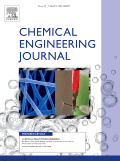
Chemical Engineering Journal
Scope & Guideline
Leading the charge in multidisciplinary chemical research.
Introduction
Aims and Scopes
- Bioprocess Engineering:
The journal emphasizes research on bioprocess engineering, including the design, optimization, and scaling of bioreactors for microbial, enzymatic, and cell-based processes. - Enzyme Engineering and Applications:
A core focus is the engineering of enzymes for enhanced stability, activity, and specificity in various applications, including bioremediation, biofuels production, and pharmaceuticals. - Waste Management and Valorization:
Research on the treatment and valorization of waste materials, particularly food and agricultural waste, through microbial processes and biorefinery approaches. - Sustainable Chemical Processes:
The journal promotes studies on sustainable chemical processes, including CO2 capture, waste-to-energy technologies, and the development of green solvents. - Microbial Fuel Cells and Bioelectrochemistry:
Exploration of microbial fuel cells and bioelectrochemical systems for energy recovery and pollutant degradation, highlighting the interactions between microbial communities and electrochemical processes. - Optimization and Modeling:
Research involving mathematical modeling, optimization techniques, and computational tools to enhance the efficiency of chemical and biological processes. - Nanotechnology in Chemical Engineering:
Application of nanotechnology in chemical engineering, including the development of nanomaterials for catalysis, biosensing, and environmental remediation.
Trending and Emerging
- Synthetic Biology and Metabolic Engineering:
There is a significant increase in research focused on synthetic biology and metabolic engineering, particularly in the design of microbial strains for the production of high-value compounds and biofuels. - Microbial Community Dynamics:
Research on the dynamics of microbial communities in various bioprocesses is emerging, emphasizing the interactions and synergies that enhance bioconversion and treatment efficiency. - Bio-based Products and Circular Economy:
A growing trend towards the production of bio-based products from renewable resources, emphasizing the circular economy and sustainable practices in chemical engineering. - Real-time Process Monitoring and Control:
Advancements in real-time monitoring techniques, such as spectroscopy and biosensors, are increasingly featured, highlighting their role in optimizing bioprocesses and ensuring product quality. - Integration of AI and Machine Learning:
The incorporation of artificial intelligence and machine learning techniques in optimizing bioprocessing and predicting outcomes is gaining traction, reflecting the need for data-driven approaches in chemical engineering. - Nanomaterials and Their Applications:
Research on nanomaterials, particularly in biocatalysis, biosensing, and wastewater treatment, is on the rise, showcasing their potential in enhancing process efficiency and sustainability. - Environmental Biotechnology:
There is an emerging emphasis on environmental biotechnology, particularly in the context of wastewater treatment, bioremediation, and pollutant degradation using microbial systems.
Declining or Waning
- Traditional Chemical Processes:
Research focused on conventional chemical processes without integration of biological or sustainable practices has seen a decline, as the field moves towards more innovative, eco-friendly approaches. - Static Process Analysis:
There has been a waning interest in purely theoretical models of chemical processes without experimental validation or application, as researchers increasingly emphasize practical, real-world applications. - Basic Chemical Engineering Fundamentals:
Topics that cover basic chemical engineering principles without a specific application to bioprocessing or sustainability are becoming less prominent as the journal shifts focus to more applied research. - Inorganic Catalysis:
Research related to traditional inorganic catalysis, particularly in the absence of biological components, has diminished as interest grows in biocatalysis and enzyme-mediated processes.
Similar Journals

ENVIRONMENTAL ENGINEERING SCIENCE
Empowering research that shapes environmental practices.ENVIRONMENTAL ENGINEERING SCIENCE is a leading journal published by MARY ANN LIEBERT, INC that provides a platform for pioneering research in the fields of environmental chemistry, pollution control, and waste management. With an ISSN of 1092-8758 and an E-ISSN of 1557-9018, this peer-reviewed journal aims to disseminate high-quality scientific studies that address critical environmental challenges. As evidenced by its 2023 category quartile rankings, it holds a notable position at Q3 in Environmental Chemistry and Pollution and Q2 in Waste Management and Disposal, highlighting its relevance and impact in these domains. Spanning over two decades from 1997 to 2024, the journal is dedicated to fostering innovations and promoting rigorous scholarship that can contribute significantly to sustainable environmental practices globally. Authors and researchers are encouraged to engage with this essential resource, which offers Open Access options to enhance the visibility and reach of their work. For those interested in advancing their understanding and practice within the environmental sciences, ENVIRONMENTAL ENGINEERING SCIENCE is an indispensable journal to consider.

Reactions
Exploring the Frontiers of Chemical InnovationReactions is a dynamic open-access journal published by MDPI, dedicated to the advancement of research in the fields of Chemical Engineering and Chemistry. Launched in 2020, the journal aims to provide a platform for scientists and researchers to share their findings and innovations, facilitating the synthesis and dissemination of knowledge within the global academic community. With an impact factor that reflects its growing influence, Reactions ranks 47th in the Chemical Engineering category and 72nd in Chemistry on Scopus, placing it within the vibrant landscape of contemporary chemical research. Housed in the picturesque city of Basel, Switzerland, the journal is committed to open access, ensuring that its high-quality content is readily available to all. This commitment not only enhances visibility but also fosters collaboration among researchers, professionals, and students striving to push the boundaries of chemical sciences. As we look towards 2024 and beyond, Reactions continues to encourage submissions that explore groundbreaking methodologies, innovative applications, and transformative theoretical frameworks in chemistry and chemical engineering.
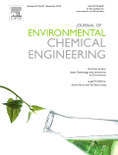
Journal of Environmental Chemical Engineering
Leading the charge in environmental chemical innovation.Journal of Environmental Chemical Engineering, published by Elsevier in the United Kingdom, stands at the forefront of integrative research in the field of environmental science and engineering. With an impressive impact factor that places it in the top quartile (Q1) across multiple categories, including Chemical Engineering (Miscellaneous), Pollution, and Waste Management, it serves as a vital resource for researchers and professionals dedicated to advancing sustainable chemical processes and technologies. Since its inception in 2013, this journal has continually focused on fostering innovation and disseminating knowledge that addresses global environmental challenges. With rankings that highlight its influence—22nd in Environmental Science & Pollution and 11th in Process Chemistry & Technology—the journal publishes high-quality articles that span both theoretical investigations and applied research. This dedication to excellence culminates in a comprehensive platform that not only shares significant advancements but also shapes the future directions of environmental chemical engineering.
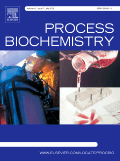
PROCESS BIOCHEMISTRY
Advancing biochemical innovation for a sustainable future.PROCESS BIOCHEMISTRY is a premier journal published by Elsevier Science Ltd, dedicated to advancing the field of biochemistry, microbiology, and bioengineering. With an ISSN of 1359-5113 and an E-ISSN of 1873-3298, this renowned journal is recognized for its impactful contributions, as demonstrated by its Q2 ranking in Applied Microbiology and Biotechnology, Biochemistry, and Bioengineering categories as of 2023. Covering a wide array of topics since its inception in 1950, PROCESS BIOCHEMISTRY serves as a crucial platform for researchers and professionals to disseminate innovative findings and develop new insights in enzyme technology, metabolic pathways, and bioreactor design. Although the journal operates under a non-open access policy, it remains vital for those engaged in cutting-edge biochemical research and development. Located in the United Kingdom, it continues to facilitate scientific discourse and foster collaboration among industry experts and academic scholars worldwide.

Korean Chemical Engineering Research
Connecting Scholars to the Future of Chemical EngineeringKorean Chemical Engineering Research, published by the Korean Institute of Chemical Engineers, serves as a vital resource for those engaged in the expansive field of chemical engineering. With an ISSN of 0304-128X and an E-ISSN of 2233-9558, the journal offers a platform for scholarly articles that cover various aspects of chemical processes, innovative technologies, and sustainability practices in engineering. Despite being in the Q4 category of chemical engineering journals as per the 2023 rankings, the journal's focus on emerging research from South Korea and beyond presents unique insights valuable to professionals, researchers, and students alike. Operating under effective citation metrics, it finds its place within Scopus, ranking at 229 out of 273, indicating a niche yet specialized contribution to the broader scientific community. We invite you to explore this integral journal, which is committed to fostering discourse and development in chemical engineering through its extensive archive, dating back to 2014 and continuing to evolve through 2023.
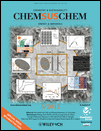
ChemSusChem
Transforming Challenges into Sustainable InnovationsChemSusChem is a premier interdisciplinary journal, published by WILEY-V C H VERLAG GMBH, that focuses on the critical fields of Chemical Engineering, Energy, Environmental Chemistry, and Materials Science. Since its inception in 2008, the journal has consistently maintained a Q1 ranking across multiple categories, highlighting its role as a vital resource for researchers and professionals dedicated to advancing sustainable chemical processes and technologies. With an impressive impact factor, it ranks 12th in General Chemical Engineering and is highly regarded within its scopes, indicating the journal's commitment to publishing high-quality, innovative research that addresses global challenges in energy and environmental sustainability. Though it operates on a subscription model, its contributions are essential for those in academia and industry seeking cutting-edge developments in sustainable chemistry. As it approaches its convergence span through 2024, ChemSusChem continues to shape the future of sustainable chemistry, making it a must-read for students, researchers, and practitioners alike.

BIOPROCESS AND BIOSYSTEMS ENGINEERING
Shaping the Future of Bioengineering Through CollaborationBIOPROCESS AND BIOSYSTEMS ENGINEERING is a prestigious journal published by Springer, dedicated to advancing the field of bioengineering and biotechnology. Established in 1996, this influential journal provides a platform for disseminating high-quality research that covers a wide spectrum of topics related to bioprocessing, biosystems, and their applications in medicine and environmental engineering. With an impressive impact factor and ranking in the top quartile (Q2) across bioengineering, biotechnology, and miscellaneous medical fields, BIOPROCESS AND BIOSYSTEMS ENGINEERING stands out as a critical resource for researchers, professionals, and students. The journal is indexed in Scopus, reflecting its significant contribution to the scientific community, particularly with its robust percentile rankings (77th in Biotechnology and 70th in Bioengineering). Available in both print and electronic formats, this journal ensures accessible research for those pushing the boundaries of knowledge in bioprocessing and biosystems. As it continues to evolve, BIOPROCESS AND BIOSYSTEMS ENGINEERING encourages submissions that contribute to innovative research practices and applications, thereby fostering academic collaboration and advancement in this dynamic field.
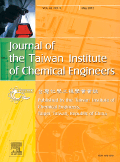
Journal of the Taiwan Institute of Chemical Engineers
Elevating knowledge exchange in the chemical sciences.The Journal of the Taiwan Institute of Chemical Engineers is a prestigious publication in the field of chemical engineering and chemistry, published by Elsevier. With an impressive impact factor placing it in the top quartiles (Q1) of both the Chemical Engineering (miscellaneous) and Chemistry (miscellaneous) categories, this journal serves as a vital platform for disseminating cutting-edge research and innovative findings. Since its inception in 2009 and continuing through 2024, it has established a strong reputation with notable Scopus rankings—ranked 40th out of 273 in General Chemical Engineering and 62nd out of 408 in General Chemistry, reflecting the journal’s significance in its field. By offering open access options, the journal ensures that research is readily available to a global audience, fostering collaboration and knowledge exchange among researchers, professionals, and students. The Journal of the Taiwan Institute of Chemical Engineers is dedicated to advancing the discipline of chemical engineering and supporting the development of novel scientific methodologies and applications.
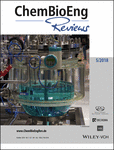
ChemBioEng Reviews
Unveiling Breakthroughs in Process ChemistryChemBioEng Reviews is a premier academic journal dedicated to advancing the fields of biochemistry, bioengineering, and chemical engineering. Published by WILEY-V C H VERLAG GMBH, this journal serves as an essential platform for researchers and professionals seeking to disseminate groundbreaking insights and innovations. With a remarkable impact factor and a solid reputation, it is ranked in the top quartile (Q1) across multiple disciplines, including Biochemistry, Bioengineering, and Industrial and Manufacturing Engineering. The journal's comprehensive scope covers the synthesis, analysis, and application of bioengineered solutions, making it a vital resource for anyone involved in process chemistry and technology. With an unwavering commitment to high-quality scientific discourse from 2014 to 2024, ChemBioEng Reviews is not only pivotal for the academic community but also contributes to industry advancements in filtration, separation processes, and the intersection of chemical and biological engineering.
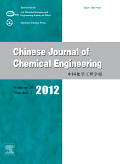
Chinese Journal of Chemical Engineering
Empowering Discoveries in Chemical and Environmental SciencesChinese Journal of Chemical Engineering, published by CHEMICAL INDUSTRY PRESS CO LTD, is a premier academic journal dedicated to advancing the field of chemical engineering and related disciplines. With a strong emphasis on innovative research and practical applications, the journal spans a wide range of topics including biochemistry, environmental engineering, and general chemistry. Boasting a commendable impact factor and a consistent presence in Q2 quartiles across multiple categories, it ranks impressively in Scopus, notably positioned in the top percentile of its fields, enhancing its credibility and reach among the scientific community. Published continuously since 1993 and converging towards its 2024 goals, the journal remains committed to fostering sustainable and impactful research. Researchers, professionals, and students alike will find invaluable resources and cutting-edge insights, making the Chinese Journal of Chemical Engineering an essential platform for disseminating pivotal work in the realms of chemical and environmental sciences.